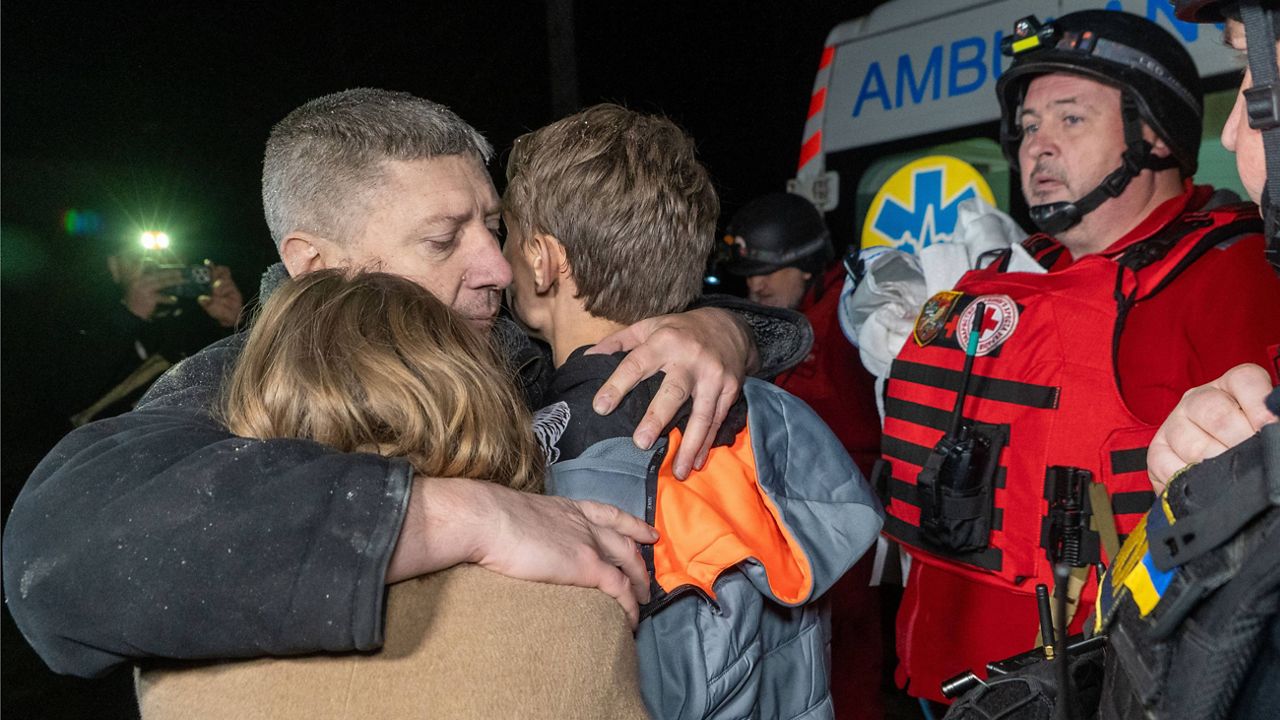The parents of the 29-year-old gunman who opened fire on a Dallas immigration facility in September told police their son was “completely normal” before he moved to Washington state and returned home several years ago, believing he had “radiation sickness” and was “allergic to plastic,” according to newly released records.
Joshua Jahn had begun wearing cotton gloves to avoid contact with plastic and practiced target shooting with a newly purchased rifle in Oklahoma a month before the deadly rooftop attack on a U.S. Immigration and Customs Enforcement building, according to a report written by a Fairview Police Department officer.
Jahn killed two detainees and wounded another before taking his own life in the Sept. 24 shooting.
The two deceased victims were identified as Norlan Guzman-Fuentes, 37, from El Salvador, and Miguel Angel Garcia-Hernandez, 32, from Mexico. Garcia-Hernandez was shot at least eight times during the attack and later died at Parkland Hospital after being taken off life support, according to the League of United Latin American Citizens.
The wounded victim, Jose Andres Bordones-Molina, was eventually released from the hospital, according to a Department of Homeland Security official.
The records, obtained by The Associated Press through an open records request, reveal no clues about what may have motivated the attack. Federal authorities said previously that Jahn wrote “ANTI-ICE” on a bullet and left handwritten notes indicating he wanted to ambush and terrorize ICE agents.
The new records show that on the day of the shooting, Jahn’s parents told the FBI he would “occasionally discuss current events” with his mother but rarely engaged in conversations. His parents said he was a “loner” who was “obsessed” with artificial intelligence technology. The parents, Andrew and Sharon Jahn, did not immediately respond Monday to text and phone messages from The AP.
The documents portray Jahn as an unemployed, friendless young man who had withdrawn into playing computer games in his bedroom at his parents’ home in a Dallas suburb. Jahn was not diagnosed with or treated for any mental or physical disorders, his parents said.
Neither the police nor FBI immediately responded to a request for comment. The FBI said only that because of the government shutdown, it was focused on national security, violations of federal law and essential public safety functions.
Jahn had been “completely normal” until he moved back from Washington state in the past five years, his parents said. He had previously taken classes at a Texas community college on and off for years before driving across the country to answer an online advertisement for a seasonal job harvesting marijuana at a legal cannabis farm in Washington. Jahn appeared directionless and slept in his car for months, the farm’s owner, Ryan Sanderson, previously told The AP.
After returning from Washington because he could not retain a job, Jahn’s parents told the FBI he believed he was “allergic to plastic” and sought to avoid direct skin contact with the material. The county where he worked in Washington state was one of the sites for the secret Manhattan Project to develop atomic bombs. And they said their son became convinced that while in Washington, he had been “exposed to radiation from a nearby facility and was suffering from radiation sickness.”
Photographs from the scene of the shooting show a car affixed with a map depicting radioactive fallout in the U.S.
Records suggest his family life was far from harmonious. Jahn’s father had put pressure on his older brother to find a job or join the military after high school, and his mother called the police when the brother failed to show up to a meeting with an Army recruiter to sign enlistment papers in 2014, police records show.
Jahn’s mother called police on his sister one morning when she slept in rather than go to high school, moving out of the home for weeks as a teenager and once spray painting an expletive on the driveway of the family’s home.
But the Jahns financially supported Joshua, their youngest son, as he stayed in his second-floor bedroom and played computer games.
About a month before Jahn attacked the ICE facility, he went with his father to practice shooting at their property in Durant, Oklahoma, where they are building a new home. While Jahn’s father owned several guns, he was surprised to see his son pull an “old rifle” out of his car. Jahn told his father he had “recently” purchased the gun online, police records show.
According to the records, his mother told the FBI she had “no idea” her son owned a gun.
The FBI said previously that Jahn legally obtained the bolt-action rifle used in the shooting. But police records don’t say whether that was the gun Jahn used while target shooting.
Analysts with the Institute for Strategic Dialogue, which focuses on hate and extremism, working as part of a program organized by the Center for Internet Security, said it found that Jahn played games online under the username “Frank Hoenniker.” The username is apparently a misspelled reference to a cold and calculating character in author Kurt Vonnegut’s 1963 satirical novel, “Cat’s Cradle,” about politics, religion and nuclear proliferation.
Steam, a game distribution platform, shows Jahn logged more than 11,000 hours on first-person shooter and survival games.


